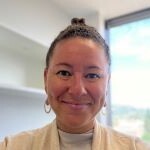About the Editors
Editor-in-Chief
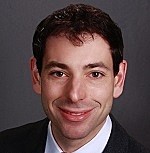 Trever Bivona, MD, PhD
Trever Bivona, MD, PhD
Prof. of Medicine and Cellular and Molecular Pharmacology
University of California, San Francisco
CA, USA
Dr. Bivona is a laboratory-based physician scientist at the University of California, San Francisco. He is a cancer biologist who leads a research program focused on signal transduction and cancer genetics and the molecular basis of tumor initiation, progression, and drug resistance. A major area of interest is the function and therapeutic targeting of oncogenic receptor tyrosine kinases and RAS. The goal of this research program is to understand the regulatory principles underlying cancer cell signaling and tumor evolution to improve cancer therapy and patient survival. He is an elected member of the American Society for Clinical Investigation.
Deputy Editors
 Collin M Blakely, MD, PhD
Collin M Blakely, MD, PhD
University of California San Francisco
San Francisco, CA, USA
Dr. Blakely is a clinical/translational scientist and thoracic medical oncologist at the University of California, San Francisco. His research focuses on defining how targeted therapy resistance in lung cancer evolves at the tumor genome and transcriptome levels as well as through tumor interactions with the microenvironment. He has translated these findings into multiple clinical trials testing rational companion therapies that can prevent, delay, or overcome targeted therapy resistance. He has received several awards for his research including the Damon Runyon Clinical Investigator Award, the Doris Duke Clinical Scientist Award, and the V Scholar Award.
 Jakob Nikolas Kather, PhD
Jakob Nikolas Kather, PhD
Professor, Technical University of Dresden
Dresden, Germany
Professor Jakob Kather holds dual appointments in medicine and computer science at the Technical University (TU) Dresden, Germany, serves as a senior physician in medical oncology at the University Hospital Dresden and holds an additional affiliation with the National Center for Tumor Diseases (NCT) in Heidelberg. His research is focused on applying artificial intelligence in precision oncology. Prof. Kather’s research team at TU Dresden is using deep learning techniques to analyze a broad spectrum of clinical data, including histopathology, radiology images, textual records, and multimodal datasets.
Managing Editor
 Aparna Anantharaman, PhD
Aparna Anantharaman, PhD
Aparna earned her PhD in bioscience from New Delhi, India where she designed and tested antibiotic peptides against pathogenic bacteria. She then moved to the US to work as a postdoctoral researcher and gained over nine years of research experience in gene regulation and RNA biology. Aparna has expertise in advanced molecular and cellular biology, biochemistry, biophysics, and basic bioinformatics. She transitioned into publishing in 2023 and now serves as a Managing Editor for the npj Series. She is based in the Philadelphia office.
Associate Editors
 Malak Abedalthagafi, MD, PhD
Malak Abedalthagafi, MD, PhD
Professor of Pathology
Emory School of Medicine
Georgia, United States
Dr Abedalthagafi is an American board-certified physician-scientist in Clinical Pathology, Anatomical Pathology, Neuropathology, and Molecular Genetics Pathology. She is also the Chair of neuropathology services and neuropathology fellowship director at Emory University School of Medicine. Her research has contributed to advances in molecularly targeted approaches for meningioma and pediatric gliomas. Her research focuses on the intersection between pediatric cancer, familial cancer predisposition syndromes, cancer genomics, AI/ML and therapeutic intervention.
 Mihaela Aldea, MD, PhD
Mihaela Aldea, MD, PhD
Department of Medical Oncology Gustave Roussy
Villejuif, France
Aldea, MD, PhD, is an assistant professor for the International Center of Thoracic Cancers at Paris Saclay University and a medical oncologist for the Thoracic Cancer and Precision Medicine Group in the Department of Cancer Medicine at Gustave Roussy in Villejuif, France. She received her medical degrees from Iuliu Hatieganu University of Medicine and Pharmacy in Cluj-Napoca, Romania and completed her fellowships in medical oncology at Ion Chiricuta Oncology Institute in Romania and at Gustave Roussy in France. Dr Aldea is board certified in medical oncology.Dr Aldea conducts collaborative clinical and translational investigations as part of a robust precision medicine multi-disciplinary group. She has a strong background in clinical oncology and molecular biology, with a special focus on liquid biopsy, cancer resistance and RET+ lung cancer. She conducts the RET MAP global registry for patients with lung cancer and RET fusions.Dr Aldea has contributed to many peer-reviewed articles. She is also an active member of ESMO and AACR, former member of the Communication Committee, current member of the Education Committee of the International Association for the Study of Lung Cancer (IASLC), and a recipient of the L’Oréal UNESCO For Women in Science Award.
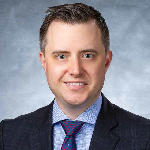 Christopher Alvarez-Breckenridge, MD, PhD
Christopher Alvarez-Breckenridge, MD, PhD
Assistant Professor, Department of Neurosurgery
University of Texas MD Anderson Cancer Center
TX, USA
Christopher A. Alvarez-Breckenridge, M.D., Ph.D., is an assistant professor in the Department of Neurosurgery at MD Anderson Cancer Center. He was a member of the Medical Scientist Training Program (MSTP) at The Ohio State University where he received his combined MD/PhD and his doctoral research focused on oncolytic viral therapy for gliomas. He subsequently completed residency in neurosurgery at Massachusetts General Hospital. During that time his research focused on markers of response to immune checkpoint blockade for central nervous system metastases. He subsequently completed a Neurosurgical Oncology Fellowship at The University of Texas MD Anderson Cancer Center prior to joining the faculty as a member of the MD Anderson Physician Scientist Program. In addition to a clinical practice focusing on cranial and spinal malignancies, he leads a translational research laboratory focusing on immunotherapeutic approaches for brain and spinal metastases along with primary spinal tumors.
 Pedro Ballester, PhD
Pedro Ballester, PhD
Royal Society Wolfson Fellow & Associate Professor
Imperial College London
London, UK
Dr. Ballester is a Royal Society Wolfson Fellow & Associate Professor at Imperial College London, where he heads a group in Artificial Intelligence for Healthcare. Prior to this, he was Assistant Professor at INSERM in France after several postdoctoral fellowships at the University of Oxford, the University of Cambridge and the European Bioinformatics Institute in the UK. His research interests include the development and application of computational approaches for predicting patient response to drug treatments exploiting heterogeneous multi-omics and clinical data sources.
 Ramesh Balusu, PhD
Ramesh Balusu, PhD
Assistant Professor, Department of Internal Medicine, Division of Hematologic Malignancies and Cellular Therapeutics
University of Kansas Medical Center
Dr. Ramesh Balusu is a faculty member in the Department of Internal Medicine, Division of Hematologic Malignancies and Cellular Therapeutics at the University of Kansas Medical Center in Kansas City, KS. His research is at the forefront of identifying novel targets and advancing precision therapies for leukemia and lymphoma cases with a poor prognosis. His laboratory focuses on investigating the intricate landscape of Nucleophosmin 1 (NPM1) and NPM1 fusion genes, as well as other fusion oncogenes, to gain profound insights into these complex malignancies. Moreover, his research extends to pioneering FLT3 and HSP90-targeted therapies for hematologic malignancies. Dr. Balusu's impactful collaboration with clinicians empowers the translation of benchside discoveries into bedside interventions for the benefit of patients.
 Pradeep Chaluvally Raghavan, PhD
Pradeep Chaluvally Raghavan, PhD
Assoc. Prof. Obstetrics and Gynecology
Medical College of Wisconsin
Milwaukee, USA
Dr. Chaluvally Raghavan is a faculty in the Department of Obstetrics and Gynecology with an adjunct appointment in the Department of Physiology at the Medical College of Wisconsin (MCW), Milwaukee. His lab is actively researching how RNA Binding Proteins (RBP) contribute to phase separation in cancer cells, stromal cells, and immune cells. The overarching goal of his lab is to characterize the cooperative oncogenesis orchestrated through RBPs for cancer progression. They are developing and validating agents that abolish cooperative oncogenesis by inhibiting the actions of RBPs and their targets. His team is also testing how single-cell genomic technologies can serve as devices for efficient target identification and drug development for cancer therapy.
 Matthew Gubin, PhD
Matthew Gubin, PhD
Asst. Professor of Immunology
The University of Texas MD Anderson Cancer Center
Houston, Texas, USA
The main emphasis of Dr. Gubin's research is to define the antigenic targets of tumor-specific T cells and better understand how T cells recognize and either eliminate cancer or fail to control tumor growth in response to cancer immunotherapy. By combining preclinical genetically engineered mouse models with analysis of human patient samples by high dimensional approaches including single-cell RNA sequencing and mass cytometry by CyTOF, his lab is focused on developing effective combinatorial immunotherapies targeting tumor-specific mutant neoantigens in both primary and metastatic cancer.
Tikvah K Hayes, PhD
Assistant Professor, Department of Molecular and Medical Pharmacology
University of California
Los Angeles, USA
Dr. Hayes leads a research program dedicated to defining the rules and mechanisms that govern signal transduction plasticity. Her laboratory focuses broadly on basic and pre-clinical mechanisms related to oncogene dependency, variant functionality, and therapeutic sensitivity and resistance. Employing a combination of high-throughput genetic screening approaches, as well as genetic and pharmacological perturbations, her lab aims to gain a deeper understanding of how mutations contribute to the initiation and maintenance of a cancerous cell state and how these cancerous cells respond to various therapeutic interventions.
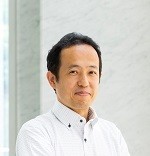 Ryohei Katayama, PhD
Ryohei Katayama, PhD
Chief, Division of Experimental Chemotherapy
Japanese Foundation for Cancer Research
Tokyo, Japan
Dr. Katayama's main research focus is to decipher the mechanism of drug resistance in lung cancer, especially fusion oncogenes driven lung cancer such as ALK or ROS1. He has ample experience in translational research conducted using clinical specimens collaborating with clinicians and scientists in the institute that he belongs to, Japanese Foundation for Cancer Research, in Tokyo. As he graduated PhD in pharmaceutical science from pharmaceutical department, he aims to identify therapeutic strategies to overcome drug resistance. Recently, he has also conducted research evaluating the resistance mechanisms to immune checkpoint inhibitors in multiple cancer types. His lab also focuses on understanding the mechanisms of cancer metastasis, and identification of molecular targets in rare cancers such as osteosarcoma or colorectal cancer in younger generation.
 Fiona Kolbinger, MD
Fiona Kolbinger, MD
Weldon School of Biomedical Engineering,
Purdue University
Fiona Kolbinger is a Research Assistant Professor at Purdue University's Weldon School of Biomedical Engineering. A physician by training, she completed her doctorate at the German Cancer Research Center in Heidelberg, Germany in 2019. Since then, she has conducted translational research at the intersection of data science and clinical medicine. Her research aims to develop computational tools for personalized treatment in surgery and interventional medicine and to evaluate the clinical value of these tools in early-phase clinical trials.
 Julie J. Miller, MD, PhD
Julie J. Miller, MD, PhD
Assistant Professor, Pappas Center for Neuro-Oncology, Department of Neurology
Massachusetts General Hospital
MA, USA
Dr. Julie Miller is an Assistant Professor at Harvard Medical School and a Neuro-Oncologist within the Pappas Center for Neuro-Oncology in the Department of Neurology at Massachusetts General Hospital. Her research focuses on IDH-mutant gliomas, a class of brain tumors that are driven by mutations that regulate metabolism. She utilizes a combination of genetic, pharmacologic and metabolomic approaches in patient-derived glioma models to elucidate the metabolic and cellular pathways that are disrupted by mutant IDH, with the goal of developing novel treatment strategies.
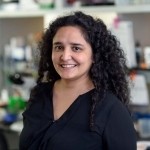 Fresia Pareja, MD, PhD
Fresia Pareja, MD, PhD
Assistant Attending, Department of Pathology and Laboratory Medicine
Memorial Sloan Kettering Cancer Center
NY, USA
Dr. Fresia Pareja is a diagnostic breast pathologist and physician-scientist at Memorial Sloan Kettering Cancer Center. Her research focuses on deciphering the molecular underpinning of special histologic subtypes of breast cancer, and on the identification of molecular alternations converging on the same phenotype. She is also passionate about the discovery of novel cancer genes through the study of rare tumors and on the role of endocytosis and pH regulation in tumorigenesis.
 Martin Sos, MD
Martin Sos, MD
Chair of Translational Oncology
German Cancer Research Center (DKFZ), The German Consortium for Translational Cancer Research (DKTK), Munich Partner Site, Ludwig-Maximilian University Munich
Munich, Germany
Dr. Sos is a Professor at the University Hospital Cologne in Germany where he heads the group of Molecular Pathology. His career encompasses medical training, cancer genomics research and translational oncology. His research interests include the dissection molecular processes that drive tumorigenesis and the study of inflammatory programs in the tumor microenvironment. His lab is focused on the therapeutic exploitation of these molecular processes and the translation of these principles into clinical practice.
 Aria Vaishnavi, PhD
Aria Vaishnavi, PhD
Assistant Professor, Department of Cancer Biology
UT MD Anderson Cancer Center
Texas, USA
The Vaishnavi lab studies mechanisms of tumor initiation, maintenance, progression, and therapeutic response. To do this, we utilize genetically engineered mouse models, patient-derived xenograft mouse models, and cultured cancer cells in combination with various genetic and pharmacological manipulations. We focus on understanding both the common and distinct signaling mechanisms used by oncogenes and cross-talk with support signaling pathways to understand their contributions to cancer. Georgios Kaissis, MD, MHBA
Georgios Kaissis, MD, MHBA
Technical University of Munich & Helmholtz Munich & Imperial College London
United Kingdom
Georgios Kaissis is an adjunct professor at the Technical University of Munich (TUM), where he leads the "Privacy-preserving and Trustworthy AI" research group at the Institute for Artificial Intelligence in Medicine. He also leads the "Reliable AI" research group at the Institute for Machine Learning in Biomedical Imaging at Helmholtz Munich, holds a honorary research appointment at the Department of Computing, Imperial College London, and is a board-certified diagnostic radiologist. His research focuses on AI in Healthcare and Medicine with a focus on differential privacy and its applications to deep learning and artificial intelligence in medicine and beyond.
Founding Editor
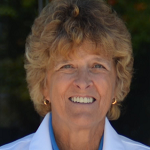 Ann M. Bode, PhD
Ann M. Bode, PhD
Interim Executive Director
The Hormel Institute, University of Minnesota
MN, USA
Dr. Ann M. Bode is the co-leader of Molecular and Cellular Biology research sections at The Hormel Institute, University of Minnesota. Previously, Dr. Bode ran a research program specializing in biomarker discovery and research focusing on the role of reactive oxygen species and antioxidants in chronic diseases, including cancer and diabetes. Her current research is focused on molecular and cellular mechanisms of cancer development and the identification of biomarkers that could determine whether a certain drug will be effective for preventing or treating cancer. She is a member of the Masonic Cancer Center, American Society of Clinical Oncology, American Association for the Advancement of Science and American Association for Cancer Research.
Advisory Editor
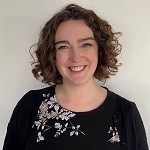 Kathryn McGinnis, PhD
Kathryn McGinnis, PhD
Kathryn is an Associate Editor at Nature Communications, within the cancer team handling manuscripts regarding cancer omics and therapeutic biomarkers. She previously studied the role of steroids in brain cancer using bulk and single cell RNA-sequencing during her PhD and subsequent post-doc at the University of Leeds. She previously received her BSc in Immunology at the University of Glasgow, and MSc working in industry within stem cell banking.
Editorial Board Members
Carlos L. Arteaga, MD, Vanderbilt-Ingram Cancer Center, Vanderbilt University, Nashville, Tennessee, USA
Aditya Bardia, MD, Harvard Medical School, Boston, Massachusetts, USA
Adam J Bass, MD, Columbia University, New York, NY, USA
Ilana Chefetz Menaker, PhD, The Hormel Institute, University of Minnesota, Austin, Minnesota, USA
Eric Collisson, MD, University of California San Francisco, San Francisco, CA, USA
Dan Dixon, PhD, University of Kansas Cancer Center, Kansas City, Kansas, USA
Angela J George, MB ChB MDRes FRACP, The Institute of Cancer Research, London, UK
Ernie Hawk, MD, The University of Texas MD Anderson Cancer Center, Houston, Texas, USA
John V Heymach, MD, PhD, Anderson Cancer Center, Houston, Texas, USA
Luke H. Hoeppner, PhD, The Hormel Institute, University of Minnesota, Austin, Minnesota, USA
Albert E Kim, MD, Massachusetts General Hospital Cancer Center, Massachusetts, USA
Scott M. Lippman, MD, UC San Diego School of Medicine, La Jolla, California, USA
Sherene Loi, MD, PhD, Peter MacCallum Cancer Centre & University of Melbourne, Melbourne, Australia
Mark M. Moasser, MD, University of California, San Francisco, San Francisco, CA, USA
Rebecca J. Morris, PhD, The Hormel Institute, University of Minnesota, Austin, Minnesota, USA
Sathiya Pandi Narayanan, PhD, SIDRA Medicine, Qatar
Rachael C Natrajan, PhD, The Institute of Cancer Research, London, UK
Emanuel F. Petricoin, PhD, George Mason University, Manassas, Virginia USA
Sanjay K. Srivastava, PhD, Texas Tech University Health Sciences Center, Amarillo, Texas, USA
Young-Joon Surh, PhD, Molecular Medicine and Biopharmaceutical Sciences, Seoul National University, Seoul, Korea
Eva Szabo, MD, National Cancer Institute, Bethesda, Maryland, USA
Hongyang Wang, MD, PhD, Chinese Academy of Sciences, Shanghai, China
Douglas Yee, MD, Masonic Cancer Center, University of Minnesota, Minneapolis, Minnesota, USA
Alexandra S Zimmer, MD, OHSU, Knight Cancer Institute, OR, USA
Interested in joining the journal team?
If you are interested in joining the journal as an Editorial Board Member or Associate Editor, please complete this Google form. Associate Editors are part of the editorial team that handle manuscripts, while Editorial Board Members are regular reviewers and are consulted for ad hoc advice. We will contact you if your expertise meets the needs of the journal.
Nature Portfolio journals are committed to promoting practices that support diversity, equity and inclusion in science communication and publishing, and we strongly encourage gender, race, ethnic, geographic, career stage and other diversity in our journal teams. Our in-house staff will use your information only for the purposes of identifying new editorial team or board members. Please contact the journal by email if you would like to remove your information from these records.
Please note that we are not able to respond to all applicants.

